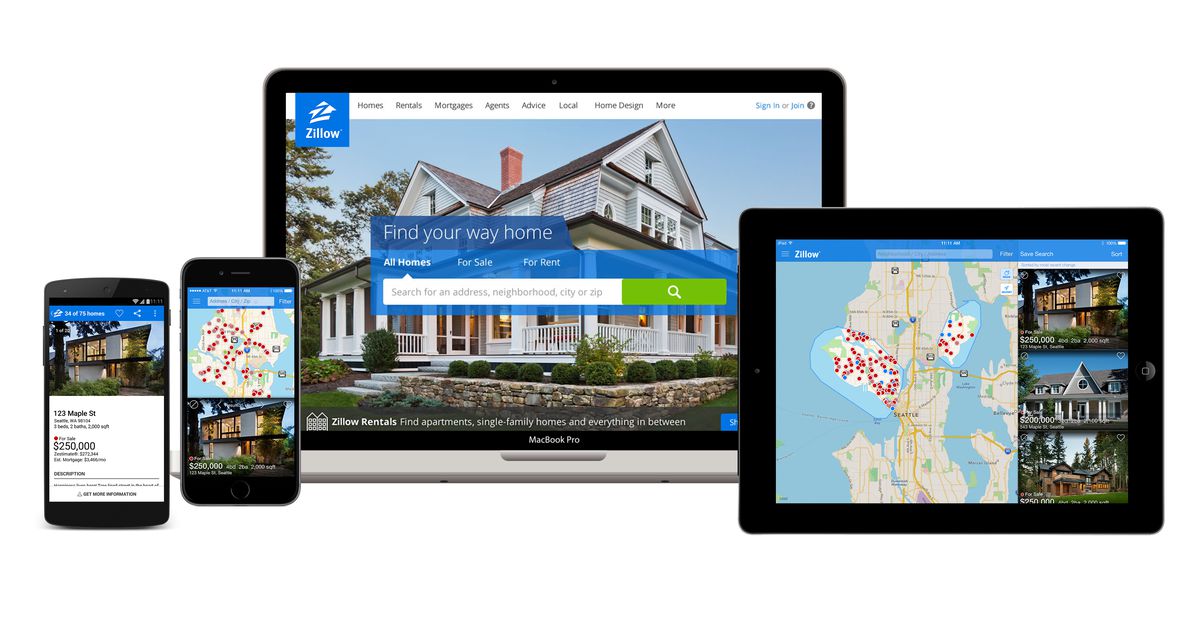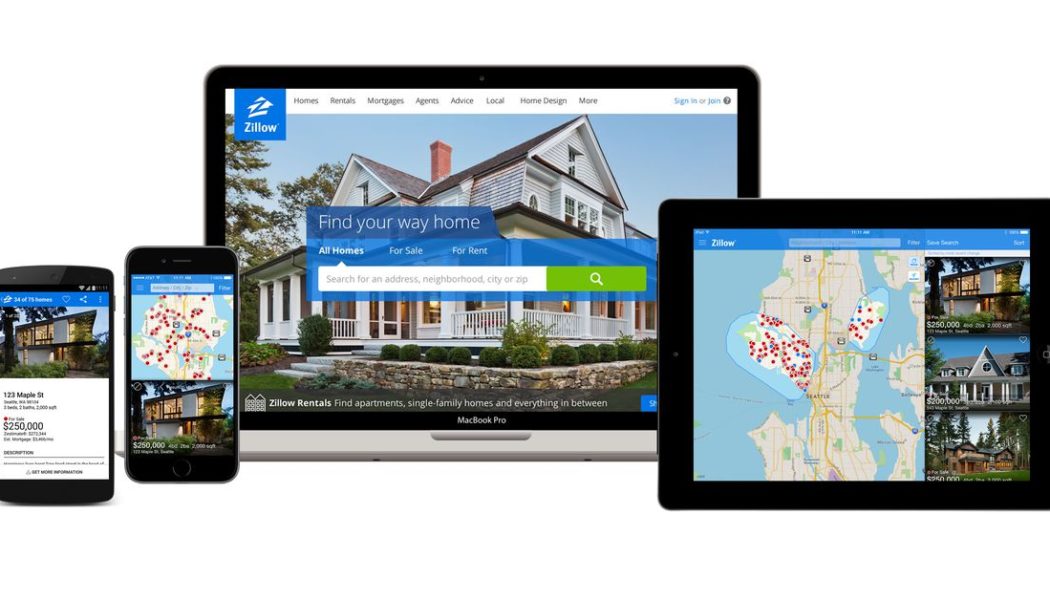
Zillow is trying to offload around $2.8 billion worth of houses onto investors after it bought them with the intent of selling them to hopeful homeowners and landlords, according to a report by Bloomberg. This follows another Bloomberg report that the real estate browsing website had to stop buying houses when it found itself with excess inventory after the company told investors it planned on ramping up its flipping business.
Some readers may be surprised that Zillow buys and sells houses, rather than just acting as a place for real estate agents to post listings — I was too when I first heard about it, but the company has actually been doing this for years through its Zillow Offers program. According to its site, the idea is that Zillow will buy your house in cash, streamlining the process significantly. It’ll then deal with any repairs or quick renovations and then sell the house itself. It’s not the only one with this business model either — competing real estate site Redfin has a similar program, and there are entire companies dedicated to internet-based home-buying, like OpenDoor.
In August, a Vice article detailed what it described as an “arms race” among tech companies that were trying to buy up as much real estate as possible as housing prices exploded across the country. According to the report, Zillow bet big, telling investors that it planned to buy thousands of houses throughout 2021 and turn its Homes division into a billion-dollar business.
As the staggeringly hot summer came to an end, though, it seemed like Zillow’s Offers business was also cooling down — in October, the company told investors that it would stop buying houses, citing construction, renovation, and closing labor shortages. Bloomberg, however, speculated that it could also be motivated by excess inventory and reported that Zillow seemed to sell a good number of houses at a loss instead of a profit.
Now, according to Bloomberg, Zillow is looking to offload around 7,000 of the homes it bought. Unfortunately, it doesn’t seem like individual house hunters will be able to benefit from Zillow’s troubles — Bloomberg reports that the company is trying to sell the homes to “institutional investors” (read: Wall Street-like firms) to the tune of $2.8 billion. To would-be homebuyers who have been turned down due to a seemingly endless supply of cash buyers, it may feel like a slap in the face. However, it doesn’t seem like the housing market’s wild ride is entirely due to investment bankers.
A report from Vox cites research that investors only made up about 20 percent of the home-buying market in 2020, and Zillow says that it and its competitors made up around 1 percent of the housing market in Q2 2021. In some ways, those numbers are both terrifying and reassuring — a fifth of the housing market is a massive and influential chunk, but it also means that it likely wasn’t a private equity firm (or Zillow) that outbid you on your dream home.
It’s hard to tell what will come of this sale and how it’ll affect Zillow’s home flipping plans in the future. However, it probably won’t stop the conspiracy theories that Zillow is driving up prices on purpose, and if I’m any indication, it won’t make home hopefuls feel any better about their chances of scoring a place to live. Perhaps it’s just another data point for the argument that finances are a meme now and that betting big doesn’t mean you’re going to get what you’re hoping for.









